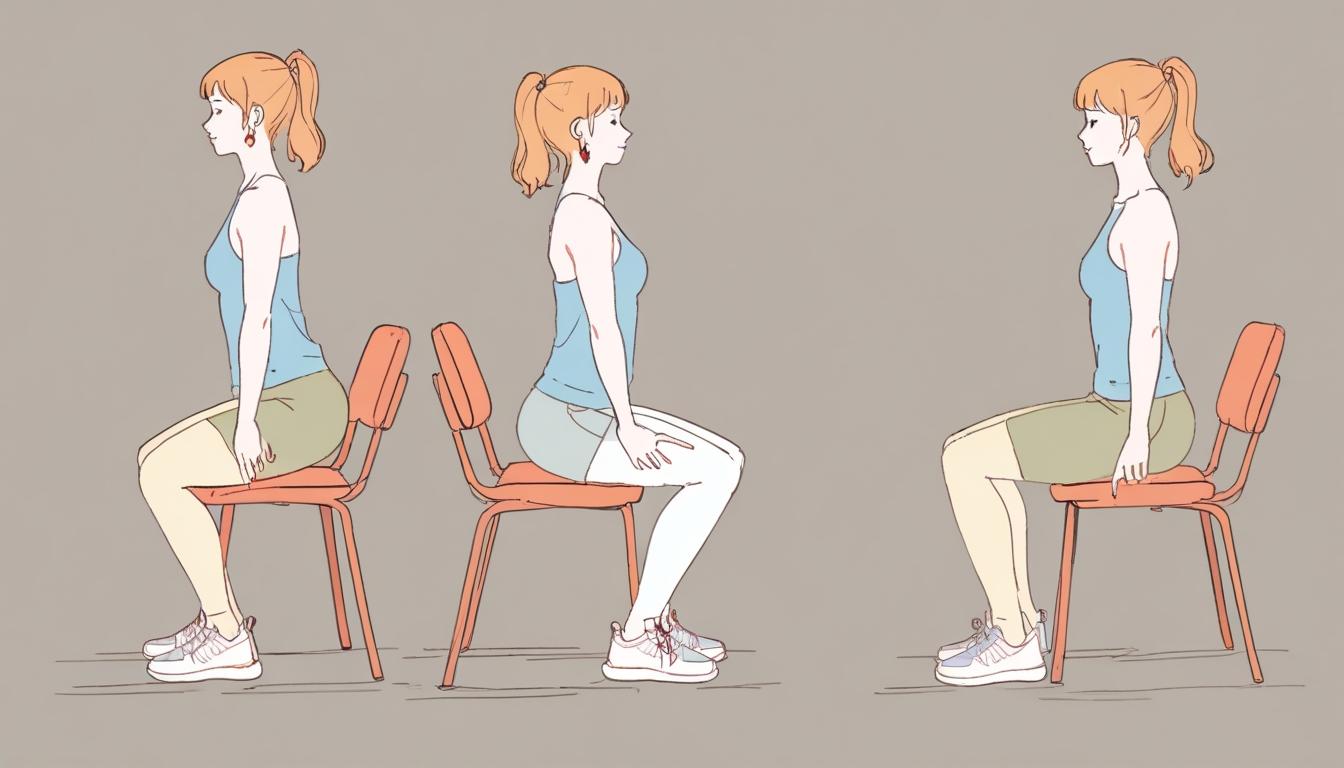Unlocking the Benefits of Five-Minute Daily Workouts
In a society where gym memberships and hour-long training sessions reign supreme, a recent study from Edith Cowan University challenges this conventional wisdom. This research highlights that even a simple, five-minute bodyweight workout can lead to significant improvements in both physical and mental health for sedentary individuals. This newfound perspective emphasises that substantial fitness gains can be made without formal training environments or complex regimens.
The study, published in the European Journal of Applied Physiology, involved a four-week period where participants engaged in a series of basic bodyweight exercises: chair squats, wall press-ups, chair reclines, and heel drops. These activities were performed with an emphasis on eccentric movements, meaning participants were instructed to slowly lower their bodies during repetitions, thus enhancing muscle engagement. The results were compelling: participants saw gains not just in muscle strength and endurance but also in mood and overall mental well-being.
The routine was straightforward: ten repetitions of each exercise, executed with a deliberate tempo. Participants could schedule these workouts flexibly throughout their day, illustrating how brevity and accessibility can encourage habitual exercise. The inclusion of progressive overload—advancing to more challenging variations of each exercise—ensured continuous development. This approach uncovers a fundamental truth about fitness: a little effort, when done repeatedly, can yield considerable results.
Despite the promising outcomes, sceptics may argue that the study's small sample size limits broader applicability. Yet, Dr Richard Blagrove, a senior lecturer in physiology at Loughborough University, asserts that even minimal exercise can yield substantial health benefits. He cites research in the British Journal of Sports Medicine, indicating that participants burning just an additional 500 calories weekly—equivalent to a modest daily effort—showed reduced mortality risks compared to those who remained inactive. This notion is echoed by various studies highlighting that even short bursts of activity trigger beneficial physiological changes, such as improved blood flow and better blood-sugar regulation, consequently lowering the risk of chronic conditions like diabetes and heart disease.
Observable improvements in mood also merit discussion. Exercise is widely recognised for its mental health benefits, with research demonstrating that less than an hour of exercise per week can have protective effects against depression. Samuel B. Harvey, an associate professor at the University of New South Wales, reports that a significant portion of the protective impact of physical activity against depression is achieved within the first hour of engagement weekly, regardless of intensity.
Joe Wicks, a prominent figure in fitness education, reinforces these findings through firsthand observations from his workplace wellness initiative. He notes stark contrasts in energy levels and mental health between employees who incorporate even minimal exercise into their schedules and those who do not. Wicks advises individuals struggling to find time for a full workout to seize opportunities, however brief, to move. “I want to make it really manageable,” he explains, encouraging people to utilise short periods during their day for physical activity to foster long-term health benefits.
The idea of "exercise snacking," or breaking up periods of sedentary behaviour with short bursts of exercise, is gaining traction. Research shows that just 16 minutes of bodyweight exercises, dispersed throughout a workday, can mitigate the adverse effects of prolonged sitting. Such findings reinforce the tenet that every muscle contraction counts, and that forming exercise habits through consistent, manageable efforts can pave the way for considerable long-term gains.
Importantly, understanding the SAID principle—specific adaptations to imposed demands—provides clarity on how the body responds to regular activity. Whether the routine involves lifting weights or simply standing up from a chair, consistent movement fosters adaptation, improving muscular function and reflexes over time.
In summary, the evidence emerging from recent studies indicates that substantial health benefits can be unlocked through small, daily commitments to exercise. For those who fancy themselves too busy or unfit to embark on rigorous workout regimes, the tenets of progressive strength training and short, effective routines provide a viable path to improved health. The imperative here is clear: when it comes to fitness, even a little can go a long way.
Reference Map:
- Paragraph 1 – [1], [2]
- Paragraph 2 – [1], [2]
- Paragraph 3 – [3], [5]
- Paragraph 4 – [6], [7]
- Paragraph 5 – [6], [3]
- Paragraph 6 – [1], [2]
- Paragraph 7 – [3]
- Paragraph 8 – [7]
Source: Noah Wire Services
